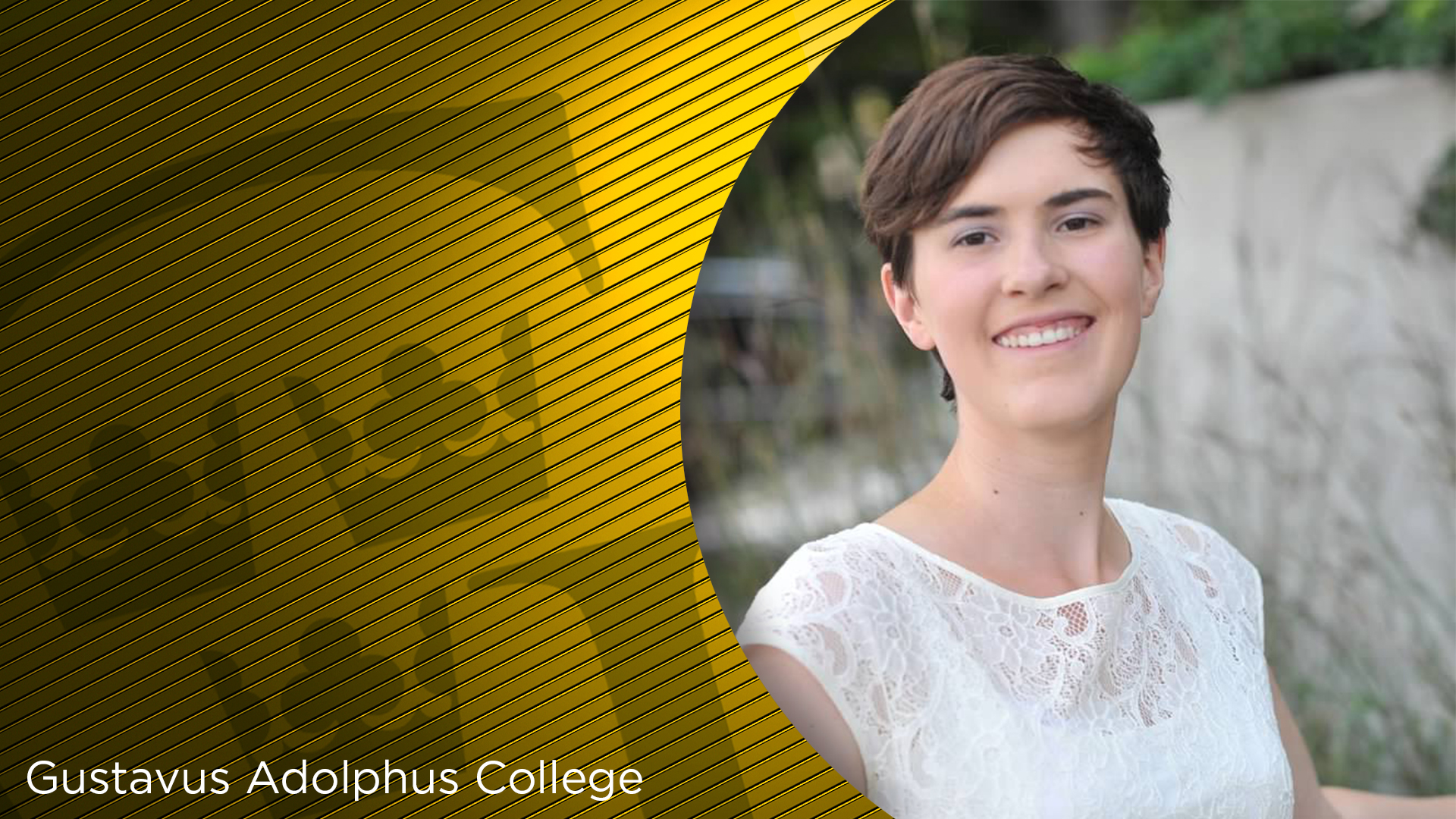Gustavus Adolphus College junior Sarah Mersch ‘21 is the recipient of the ThinkSwiss Research Award recipient funded by the Embassy of Switzerland in Washington, D.C.
ThinkSwiss is a scholarship program promoting and funding research opportunities in Switzerland for American students with the intent of fostering exchanges between universities and research institutions.
“I’m really excited to have the opportunity and to get the chance to work. I can choose what I want to research and the professor to work with, unlike most summer research programs,” Mersch said.
A junior chemistry and environmental studies major, she previously conducted research during a January Interim Experience with Gustavus chemistry professor Jeff Jeremiason, where her work focused on tracing metals and Pb isotopes in an African Crater Lake. The hands-on experience sparked her interest in paleoceanography.
“I’ve been lucky to be able to go to a couple different conferences and present the research,” Mersch said.

After her initial research experience with Jeremiason, she was awarded a Gustavus Presidential Faculty-Student Collaboration Grant, which enabled her to work full-time with the professor the following summer.
Mersch’s ThinkSwiss project research will resemble a National Science Foundation Research Experience for Undergrads (NSF), where she will be able to present her research at the conclusion of the program.
As part of the ThinkSwiss scholarship program, participants are able to identify and work with a research laboratory of their choice in Switzerland and create a research proposal in collaboration with the lab.
Mersch will be working with professor Samuel Jaccard at the University of Bern in Switzerland. Professor Jaccard’s research focuses on paleoceanography and marine biogeochemistry. During the 10-week research process, Mersch will continue Jaccard’s work researching lead and thorium amounts and reconstructing the sediment flux and climate around Crozet Island in the Southern Indian Ocean.
“I’m really lucky to be working with one of the most prominent scientists in the field that I am interested in which is paleoceanography,” Mersch said.
When she is not conducting research, she plays the clarinet in the Gustavus Symphony Orchestra, serves as a member of the chemistry club executive board, and works as a lab teaching assistant.
Mersch has decided to further her career in paleoceanography after graduation and hopes to attend graduate school in Switzerland. Later, she plans to pursue a doctorate and teach at a college or university.
For more information about the Gustavus Fellowships Office and the support it gives to students, please visit the fellowship website.

Leave a Reply
You must be logged in to post a comment.